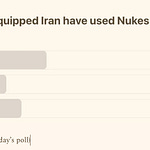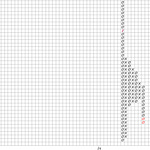If you missed it this weekend, I highly recommend you watch the entire interview with Melody Wright by Adam Taggart. It goes into so much detail and nuances that are happening in the U.S. Housing market.
I took the liberty of using the video as a source for NotebookLM and asked AI to summarize the key points and organize into an explainer video with a 6 min or less runtime.
Here is an accompanying Briefing Doc, also generated by NotebookLM
Briefing Document: Decoding the Housing Market Correction - Melody Wright's Outlook
Date: October 26, 2024
Source: Excerpts from "Home Prices Will Be Heading Lower For Years | Melody Wright" (Thoughtful Money interview with Adam Tagert)
Summary: This briefing provides a detailed overview of housing analyst Melody Wright's increasingly confident and stark assessment of the US housing market. Wright asserts that a significant and prolonged housing correction is underway, projected to be worse than the 2008 Great Financial Crisis (GFC). This downturn is driven by a confluence of factors including declining sales, accumulating inventory, tightening lending standards, shifting demographics, and a reduction in government support. She highlights a "bifurcated" market where some regions are already experiencing sharp declines, with the correction now spreading to previously resilient areas.
Main Themes and Key Ideas/Facts:
1. A Deep and Prolonged Correction Worse Than the GFC: * Wright firmly believes the housing correction "will continue grinding down until we make that uh correction that I do believe is going to be worse than the GFC." * The trend for home prices is "really going to be down over the next 18 months" and likely extends through the end of 2026. * This correction is still in its "early stage of a multi-year housing correction."
2. Widespread Market Weakness and Spreading Contagion: * Bifurcated Market is Converging: While some markets (Texas, Florida) have been correcting hard, the "infection is creeping into places like California and a number of other states." * Seasonal Declines Outsized: Even in southern states, where seasonal declines are typical, "these are outsized moves right now." * Previously Resilient Markets Turning: The Midwest and Northeast, once considered robust, are now showing signs of weakness. Wright notes, "in some New Jersey cities month over month" declines and "Cleveland home prices down year-over-year." Even Bentonville, Arkansas, previously seen as "a great protected market," is now "showing weakness." * Resort Towns as Bellwethers: Vacation towns, especially those with high Airbnb presence, are experiencing price declines due to reduced tourism and the unsustainability of these investments. Las Vegas is cited as a "bellwether" that is "getting hit." * Motivated Selling: In some areas like Bentonville, rising home sales are not a sign of a "hot hot hot" market but rather "people are trying to get out."
3. Declining Sales and Accumulating Inventory: * Historically Low Sales: Wright repeatedly emphasizes the "worst sales we've seen in 30 years, you know worse than the GFC," despite a 20% population increase. * Inventory Accumulation: This is a key driver of price declines, with Wright noting "the accumulation of inventory that's going to drive those price declines." * "Housing Shortage" as a False Narrative: Wright challenges the prevailing narrative of a chronic housing shortage, arguing it's "increasingly proving false visibly as we see more and more inventory come on in more and more markets." * Underestimated Inventory: Actual inventory may be 25% larger than official numbers due to unpermitted builds in unincorporated areas. * Vacancy Everywhere: Wright observes "vacant homes everywhere" through firsthand observation, indicating a significant lag in official data.
4. Builder Behavior as a Leading Indicator: * New vs. Existing Home Prices: New home prices are "way below existing home price median." This is a significant shift, as new homes historically averaged $53,000 more. * Builder Concessions: Builders are offering substantial concessions of around $45,000 on top of price reductions, leading to new homes being approximately "$80,000 less than existing uh median home price which is just bananas and cannot persist." * Signaling the Future: Builders are "signaling what is coming," as they adjust to market realities faster than the existing home market.
5. Tightening Lending Standards and Government Distortions: * Banks Pulling Back: Banks are "pulling back a little bit," checking boxes more critically, leading to appraisals coming in lower. * Non-Bank Lender Constraints: Non-bank lenders, which dominate the mortgage market, are facing "constrained" liquidity due to higher refi rates and increasing debt-to-income ratios/credit score drops for borrowers. * FHA Market in Distress: * FHA borrowers have been "looking really weak since June of 2023." * The Biden administration's "unprecedented loss mitigation workout" program, allowing multiple non-interest-bearing liens, has artificially propped up FHA prices. * This program is being restricted in October 2024, requiring trial payments, limiting claims to one every 24 months, and disqualifying borrowers with delinquent student loans (estimated 40% of FHA borrowers have student loans). * The unwinding of these programs will cause "what's been building behind the dam is going to come over." * Foreclosure Rise: Foreclosure starts and sales are "up year-over-year," and Wright expects "massive increases in those foreclosures" by June 2026. Black Knight's headline delinquency numbers exclude foreclosures, thus understating the problem. * Government as Primary Lender: The government's significant role in the mortgage market has "distort[ed] prices far beyond what the true price discovery would have them be." * Occupancy Fraud: FHA loans, intended for first-time homebuyers, are being used for investment through "occupancy fraud," which is not enforced.
6. Demographic Shifts as a Major Driver: * Boomer Offloading: "15.6 million boomers will be leaving us between 2025 and 2035," and they "own the majority of housing." Wright estimates "at least like 65%" of inherited homes from boomers will be liquidated. * Household Consolidation: Average household size, which had been shrinking, is "now starting to go up as households consolidate because they simply cannot afford to live on their own anymore." This directly contradicts the demand side of the housing shortage narrative. * "Motivated to Distress" Transition: The market is transitioning from "motivated selling" to "distress," evident in increasing owner's liens, delinquent property taxes, bankruptcies, and divorces.
7. Investor Behavior and the "Aristocratic Landlord" Concern: * Institutional Investors as Net Sellers: Large institutional investors, particularly in markets like San Antonio and Atlanta, are becoming "net sellers" due to distress and high property taxes. * COVID-era "Mom and Pop" Piling In: Many smaller investors "piled in during the COVID years" and will face challenges as the market turns. * Guardrail Debate: Wright supports limiting foreign buyers to address "ghost condos" and money laundering. While generally libertarian in her view of markets, she acknowledges the current distortion caused by government intervention. * Housing as Investment, Not Shelter: "This housing market has not been about shelter for a very long time" but rather "investment."
8. Broader Economic Headwinds and Geopolitical Factors: * Consumer Credit Delinquencies: Student loan repayments are spilling over into "other forms of consumer credit," including credit cards, auto loans, and mortgages, indicating a "very early part of that wave rippling through." * Mortgage Rate Outlook: Mortgage rates are influenced by the bond market and the appetite for mortgage-backed securities, which will carry a higher risk premium. Foreign buyers are "stepping back" from the bond market, raising concerns for rates even if the Fed cuts. * K-shaped Economy and AI Bubble: Wright shares concerns about a K-shaped economy and the potential unraveling of the "AI narrative," which could lead to "short-term really painful corrections in certain stocks."
Conclusion:
Melody Wright's outlook paints a grim picture for the US housing market, predicting a protracted and severe correction. She argues that the market is already exhibiting significant weakness, driven by fundamental shifts in supply, demand, and lending practices, with the previous government and investor-fueled distortions now unwinding. While acknowledging potential short-term pauses due to stimulus, she firmly believes the underlying trend will be "grinding down" for years, culminating in a downturn more impactful than the GFC. The full extent of this correction is expected to become undeniably clear by June of 2026, as foreclosure numbers significantly increase.








